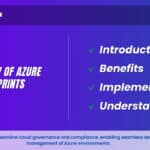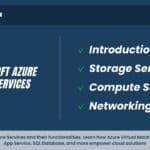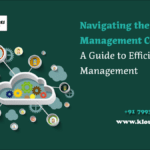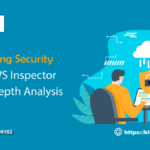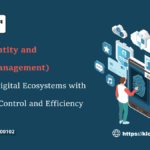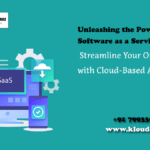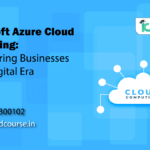Introduction
Cloud computing has experienced remarkable growth in recent years, revolutionizing the way businesses operate on a global scale. With its ability to enhance efficiency, scalability, and accessibility, cloud computing has become an integral part of modern enterprises. With the growing dependence of organizations on cloud services, the importance of certifications in the industry cannot be overstated.
These certifications validate professionals’ knowledge and expertise in cloud architecture, boost their career prospects and employability, and provide recognition for their skills and competencies to both clients and employers. In this article, we will delve into the significance of cloud computing certifications, explore the different types of certifications available, discuss the advantages they offer, and provide guidance on how to select the right certification for individual career paths.
Certifications for Cloud Computing:
An Understanding Specifying cloud computing credentials
Cloud computing certifications refer to credentials that professionals earn after successfully completing examinations that test their knowledge and proficiency in various aspects of cloud computing. These certifications serve as evidence of an individual’s ability to design, deploy, manage, and secure cloud-based solutions.
Differentiating between vendor-specific and vendor-neutral certifications
Cloud computing certifications can be categorized into two main types: The technology and services provided by a specific cloud service provider, such as Amazon Web Services (AWS), Microsoft Azure, or Google Cloud, are the topic of vendor-specific certifications. On the other hand, vendor-neutral certifications are not tied to any specific cloud provider and instead focus on broader cloud concepts, architectures, and best practices.
Overview of Popular Cloud Service Providers Offering certifications
Some of the biggest cloud service providers are AWS and Microsoft Azure. and Google Cloud, offer a range of certifications tailored to their respective platforms. These certifications demonstrate an individual’s proficiency in using the specific cloud provider’s tools, services, and architecture.
Certifications for Cloud Computing’s Benefits
Cloud computing certifications offer numerous benefits for Individuals who are looking to progress in their careers within the industry. Let’s explore some of these advantages:
Enhancing knowledge and expertise in cloud architecture
Earning a cloud computing certification requires professionals to gain in-depth knowledge of cloud architecture principles, best practices, and technologies. Through comprehensive training and examination, individuals not only increase their understanding of cloud computing but also acquire the essential skills for designing and executing. robust cloud solutions.
Boosting career prospects and employability
In today’s competitive job market, having cloud computing certifications can significantly enhance career prospects and employability. These credentials provide verifiable proof of a professional’s knowledge and commitment to staying current with market trends. Employers often prioritize candidates with relevant certifications, providing them with a competitive edge in landing sought-after roles within organizations.
Earning higher salaries and increased recognition
Professionals with cloud computing certifications often command higher salaries compared to their non-certified counterparts. These certifications showcase an individual’s expertise and ability to solve complex problems in the cloud computing domain. Moreover, certified professionals tend to receive increased recognition and respect from their peers and employers, further advancing their professional growth and opportunities.
Validating skills and competencies to clients and employers
Cloud computing certifications serve as a way for professionals to validate their skills and competencies to potential clients and employers. By achieving these certifications, individuals demonstrate their proficiency in delivering high-quality cloud solutions, giving clients and employers the confidence that they are working with knowledgeable and reliable professionals.
Types of Cloud Computing Certifications
Cloud computing certifications come in various categories, catering to professionals at different stages of their careers. Let’s explore the different types of certifications:
Foundational Certifications
Foundational certifications serve as an entry point for professionals new to cloud computing. These certifications validate individuals’ basic understanding of cloud concepts, terminologies, and architectural frameworks. Examples of foundational certifications include the AWS Certified Cloud Practitioner and Google Cloud Fundamentals.
Associate-level Certifications
Associate-level certifications are designed for professionals with some prior experience in cloud computing. These certifications assess a deeper understanding of cloud technologies, deployment techniques, and service management. Examples of associate-level certifications include the Microsoft Certified: Azure Administrator Associate and the AWS Certified Solutions Architect – Associate.
Professional-level Certifications
Professional-level certifications are aimed at experienced cloud professionals who have a comprehensive understanding of cloud architecture. I have the skill set to create and execute intricate designs Cloud solutions. Examples of professional-level certifications include the Google Cloud Professional Cloud Architect and the Azure Solutions Architect Expert.
Specialty Certifications
Specialty certificates concentrate on particular facets of cloud computing.. These certifications allow professionals to demonstrate expertise in specialized domains, such as cloud security or data engineering. Examples of specialty certifications include the AWS Certified Security – Specialty and the Google Cloud Certified: Data Engineer.
Vendor-specific Certifications
Vendor-specific certifications are tailored to specific cloud service providers, showcasing an individual’s proficiency in utilizing the tools, services, and architectures offered by a particular vendor. Examples of vendor-specific certifications include the Oracle Cloud Infrastructure and the IBM Certified Cloud Solution Architect.
Selecting the Right Cloud Computing Certification
Choosing the right cloud computing certification requires careful consideration of individual career goals, skill set, and industry demands. Here are some things to take into account when choosing a certification.
Identifying individual career goals and aspirations
Professionals should define their career goals and aspirations before choosing a cloud computing certification. Consideration should be given to the specific job roles and industries that align with personal interests and goals.
Assessing personal skill set and expertise
An honest assessment of current skills and areas of expertise is necessary to choose the right certification. Professionals should identify their strengths and weaknesses to determine which certification aligns with their existing knowledge and desired career path.
Investigating market trends and needs
Staying informed about industry trends and demands is crucial when selecting a cloud computing certification. Research the skills and certifications that are highly valued in the job market and align with emerging technologies.
Considering practical experience and job requirements
Professionals should take into account their practical experience in cloud computing and the job requirements of their target roles. Choosing a certification that complements existing experience will further enhance career opportunities.
Consulting with industry professionals and mentors
Seeking guidance from industry professionals and mentors can provide valuable insights into the certification landscape. These people can provide guidance based on their personal experience. experiences and career trajectories, helping professionals make informed decisions.
Preparing for Cloud Computing Certifications
Preparing for cloud computing certifications requires a comprehensive approach that includes studying, practicing, and engaging with the relevant materials. Here are some steps to follow during the preparation process:
Exploring available study materials and resources
Gather study materials, including books, online resources, and official documentation provided by the certification providers. These resources cover the theoretical knowledge required for the certification exams.
Joining certification preparation courses and boot camps
Consider enrolling in certification preparation courses or attending boot camps from reputable training providers. These courses often provide structured learning experiences and practical exercises to help professionals grasp to succeed in any endeavor; it is necessary to possess the fundamental concepts and skills required for exams
Engaging in hands-on practice and laboratory exercises
Hands-on practice is crucial for gaining practical experience and reinforcing theoretical knowledge. Make use of cloud-based platforms provided by the certification providers, which offer sandbox environments to experiment with the tools and services covered in the certification exams.
Taking advantage of practice exams and mock tests
Mock tests and practice tests replicate the certification exam setting . Taking these practice tests provides an opportunity to assess readiness, identify areas of improvement, and familiarize oneself with the exam format and time constraints.
Examining the Top Cloud Computing Certifications
I am here to assist professionals in making informed decisions about their work. Certification choices, let’s compare some of the top cloud certification providers and analyze the requirements, costs, and validity periods of their certifications. We will also provide highlights of three leading cloud computing certifications:
Comparing top cloud certification providers
The top cloud certification providers, including AWS, Microsoft Azure, and Google Cloud, offer a range of certifications with varying levels of difficulty and specializations. It’s important to compare the offerings of these providers to ensure the chosen certification aligns with individual career goals.
Analyzing the requirements, costs, and validity periods of certifications
Different certifications have specific requirements, such as prior experience or completion of prerequisite certifications. It’s crucial to review these requirements to determine eligibility. Additionally, consider the costs associated with certifications, including training courses, exam fees, and potential recertification costs.
Highlights of the leading cloud computing certifications:
- The AWS Certified Solutions Architect – Professional certification confirms expertise in advanced technical abilities.in design and deployment. Developing applications that are both scalable and secure on the AWS platform. It is recognized as one of the most prestigious certifications in the industry.
- Microsoft Certified: Azure DevOps Engineer Expert: This certification demonstrates expertise in implementing DevOps practices using Microsoft Azure technologies. It validates skills in areas such as continuous integration, deployment, delivery, and testing.
- Google Cloud Certified: Cloud Security Engineer: This certification focuses on securing cloud environments using Google Cloud technologies. It tests knowledge and skills related to identity and access management, data protection, network security, and incident response.
The Future of Cloud Computing Certifications
The demand for cloud computing certifications is expected to increase as enterprises embrace cloud technologies. As the industry evolves, job roles will likely become more specialized, creating opportunities for professionals with niche certifications. However, the certification landscape may also face difficulties. We are facing difficulties because of the fast speed of technological advancements. Changing Keeping up with industry trends is crucial for professionals to remain current. Emerging technologies and adapt to the evolving certification requirements.
FAQs: Common Questions about Cloud Computing Certifications
Aspiring cloud professionals often have questions regarding cloud computing certifications. Here are some common FAQs:
- What are the prerequisites for cloud computing certifications?
- How long does it take to prepare for a cloud certification exam?
- Are there any continuing education requirements or recertification?
- Are cloud certifications valuable for non-technical professions?
- Can cloud certifications be earned online?
Conclusion
In conclusion, certifications play a crucial role in the cloud computing industry by validating professionals’ expertise, enhancing their career prospects, and providing recognition for their skills and competencies. With a clear understanding of the different types of certifications available, professionals can select the one that aligns with their goals and aspirations. By adequately preparing for the certification exams and staying updated with evolving industry trends, individuals can unlock exciting opportunities in the ever-expanding realm of cloud computing.




